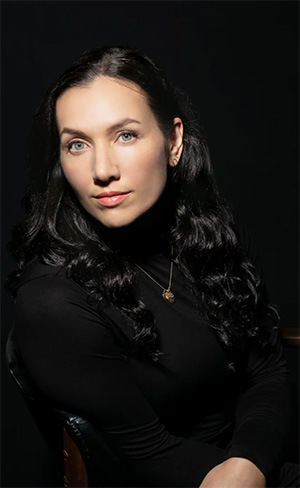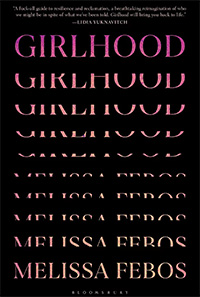Melissa Febos

Melissa Febos is the author of the critically acclaimed memoir, WHIP SMART (St. Martin’s Press 2010), and the essay collection, ABANDON ME (Bloomsbury 2017), which was a LAMBDA Literary Award finalist, a Publishing Triangle Award finalist, an Indie Next Pick, and was widely named a Best Book of 2017. Her second essay collection, GIRLHOOD, a national bestseller, was published by Bloomsbury on March 30. A craft book, BODY WORK, will be published by Catapult on March 15, 2022.
The inaugural winner of the Jeanne Córdova Nonfiction Award from LAMBDA Literary, her work has appeared in publications including The Paris Review, The Sun, The Kenyon Review, Tin House, Granta, The Believer, McSweeney’s, The New York Times Magazine, The Guardian, Elle, and Vogue. Her essays have won prizes from Prairie Schooner, Story Quarterly, The Sewanee Review, and The Center for Women Writers at Salem College. She is a four-time MacDowell fellow and has also received fellowships from the Bread Loaf Writer’s Conference, Virginia Center for Creative Arts, Vermont Studio Center, The Barbara Deming Memorial Foundation, The BAU Institute at The Camargo Foundation, The Ragdale Foundation, and The Lower Manhattan Cultural Council, which named her the 2018 recipient of the Sarah Verdone Writing Award.
She co-curated the Mixer Reading and Music Series in Manhattan for ten years and served on the Board of Directors for VIDA: Women in Literary Arts for five. The recipient of an MFA from Sarah Lawrence College, she is an associate professor at the University of Iowa, where she teaches in the Nonfiction Writing Program.
Girlhood

A gripping set of stories about the forces that shape girls and the adults they become. A wise and brilliant guide to transforming the self and our society.
In her powerful new book, critically acclaimed author Melissa Febos examines the narratives women are told about what it means to be female and what it takes to free oneself from them.
When her body began to change at eleven years old, Febos understood immediately that her meaning to other people had changed with it. By her teens, she defined herself based on these perceptions and by the romantic relationships she threw herself into headlong. Over time, Febos increasingly questioned the stories she’d been told about herself and the habits and defenses she’d developed over years of trying to meet others’ expectations. The values she and so many other women had learned in girlhood did not prioritize their personal safety, happiness, or freedom, and she set out to reframe those values and beliefs.
Blending investigative reporting, memoir, and scholarship, Febos charts how she and others like her have reimagined relationships and made room for the anger, grief, power, and pleasure women have long been taught to deny.

